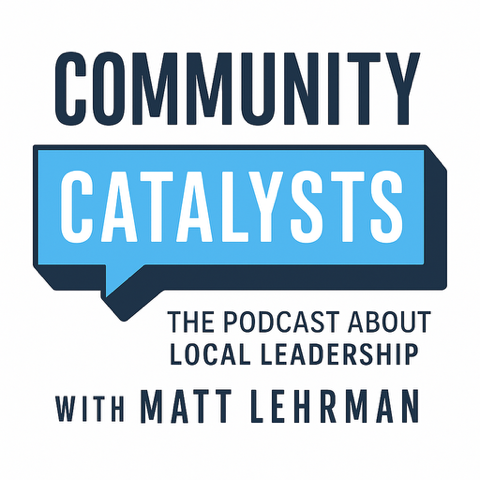Beyond Burnout: Leading When You’re Exhausted
Beyond Burnout: Leading When You’re Exhausted
By Matt Lehrman
Social Prosperity Partners
Leadership can be lonely. If you’re feeling spent, you’re not alone. Our August conversation among a cross-section of local civic leaders looked past quick fixes into “the kind of exhaustion that wears down your will, your hope, your sense of purpose.” The prompt was simple and honest: What keeps you going when it’s hard? The answers offered real recognition and practical encouragement for anyone carrying a public load right now.
Choosing your stance
Leaders kept returning to agency. “It really is a choice.” “I decide it’s gonna be a great day, and then it will be.” One mayor framed it plainly: “We have a choice to feel worn out, or a choice to keep going like the Energizer Bunny.” Faith and discipline anchored others: “I walk by faith… I guard my eyes, I guard my ears, and I’m slow to speak.”
Purpose and impact
Motivation flowed from tangible outcomes. “The direct work that I do will affect a community’s ability to have clean water… roads… bridges… broadband.” Another voice added, “What fills me up is knowing I’ve got skills I can share,” citing “clear communication to the public” and the “natural feeding energies back and forth.” A reminder echoed: “You can’t pour from an empty vessel.”
Struggle and growth
Adversity showed up as a teacher. “Struggle is nature’s way of strengthening us.” “Transformation through adversity is a thing.” Competence and courage mattered too: “Based on my experience… this is the direction you need to go.”
Navigating critics
Perspective is protective. “Focus on the silent majority.” “If you weren’t doing an okay job, they’d be letting you know.” Boundaries help: “Get off social media. Let every call go to voicemail… you don’t have to call people back for 24 to 48 hours.”
Teams and morale
Exhaustion is contagious. “There’s an underlying thing where nobody wants to admit they’re overwhelmed.” “Our team doesn’t feel heard… and that can be exhausting.” A practical reframe: “Leadership is asking what they need,” because “sometimes people just want to be heard: What do you want from this encounter?”
Rest vs. restoration
Several leaders drew a line: “Not restoration, realignment.” Strategies included “reprioritize what’s important,” trim calendars, and model health: “If you need a mental health day, take it.” Small practices count: “Write thank-you notes.” “Find a reason to laugh.” A simple diagnostic resonated: “When I’m empty, my focus goes. I forget follow-ups. Too many competing things.”
What we’re taking forward
“Choose hope” is a practice, not a slogan.
“Leadership by asking what they need” reduces exhaustion and builds agency.
“Realign, reprioritize, let go” before you speed up.
“You can’t pour from an empty vessel,” so tend the vessel.
Remember: “People are hard,” and still, “transformation through adversity is a thing.”
To every mayor, councilmember, superintendent, manager, and staff leader: the weight you carry is real, and the work you do matters to people you may never meet. Choose hope on purpose. Ask what people need and give them room to do it. Set boundaries that sustain you. Write the thank-you note. Take the next right step. When leaders model courage, care, and clarity, communities remember they are indivisible. That is how communities heal, trust grows, and the promise of local democracy moves from words to daily life.
Connect with Matt:
- Email me at Matt@SocialProsperity.us.
- Follow me on Facebook, Instagram, YouTube and LinkedIn.
- Learn more at SocialProsperity.us and MattLehrman.com.




